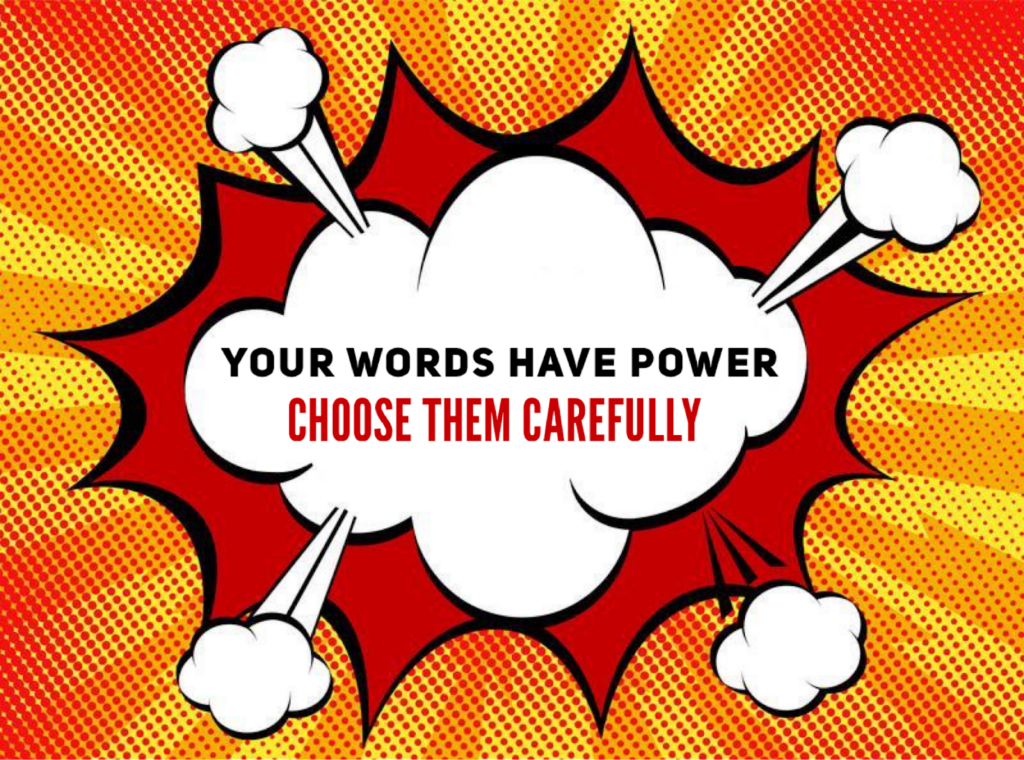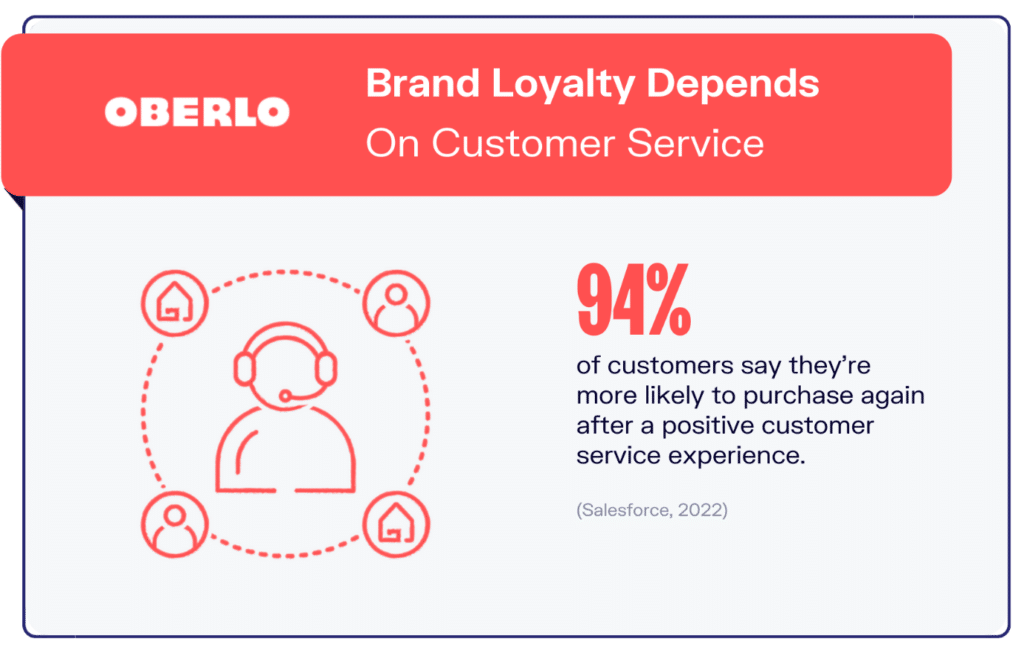Author Edward Bulwer-Lytton once said: “The pen is mightier than the sword.” Words are powerful and can have a great impact on customer service and client loyalty.
Whether communicating with customers over the phone, through email, or face-to-face, it is important to be mindful of your word choice. Positive words foster positive customer experiences, while negative words may lead to a customer experience that is less than savory.
Studies show that a negative experience can make a customer switch to a competitor. Statistically speaking, 61% of customers report that they would switch to a competitor with just one negative experience, and 76% would switch after encountering two or more negative experiences.
Another important factor to note is that 52% of customers who experience poor customer service will let their friends and family know about it. This in turn is likely to damage the reputation of the business or company to a larger extent.

Table of Contents
What Are Positive Words for Customer Service?
Positive words for customer service are those that inspire hope, confidence, and a cheerful attitude. These words are empathetic to the wants, needs, and emotions of customers and encourage the customers to look at their problems from a pragmatic perspective.
For example, replace phrases like “We can’t do that…” with “Here’s what we can do for you…” to shift the focus to other feasible options without denying assistance.
Positive language in customer service includes affirmations like, “Certainly,” “Absolutely,” and “I’d be happy to assist.” These phrases convey willingness and capability, setting a constructive tone for the interaction.
Other examples of positive words and phrases include the following:
- I am happy to assist.
- I understand that has been a frustrating experience.
- That is a great question.
- Nice to meet you.
- I will let my team know about the issue you are experiencing so we can find the best solution to your problem.
What Are Negative Words in Customer Service?
These are words that are not helpful to a customer and may not inspire hope in finding a solution. This includes words that discourage, belittle, mock, or condescend.
Rudeness, arrogance, and inability to empathize with the customer are behaviors that lend themselves to negative interactions. Failure to acknowledge the needs and/or problems that a customer is facing will not yield beneficial results.
Negative words can convey a lack of interest or willingness to help, often leading to a breakdown in communication and trust.
For instance, using phrases such as “That’s not our policy…” can come across as dismissive, creating a barrier between the customer and the service provider.
Negative words erode customer confidence, potentially decreasing loyalty and satisfaction, and resulting in damaged relationships.
Similarly, a negative tone can make customers feel unimportant and undermine the quality of customer service, ultimately reflecting poorly on the business as a whole.
Examples of negative words and phrases:
- I don’t know.
- Unfortunately
- You should have…
- I am not able to help you with that.
- I am not sure.
- It’s not my responsibility.
- It’s up to you.
When these words are used, they not only discourage the customer but can have adverse effects on the image of the business. That is why excellent customer service should be a priority for any business or company.

By the Numbers – Customer Service Statistics.
- 96.2% of customers will leave the business because of poor customer service.
- 62% of customers will pay more for good customer service.
- 66% of customers try to resolve the issue on their own before reaching out.
- 36% of consumers actively share customer service experiences on social media.
- Increasing customer retention rates by 5% boosts profit by up to 75%.
- 68% of customers find it annoying when transferred between departments.
- 40% of customers chose a communication channel depending on the complexity of their issue.
Source: 99Firms
How Do Positive and Negative Words Affect People?
The founder of positive psychology, Dr. Barbara Fredrickson stated in her findings that for every negative word uttered, you need three positive ones to neutralize it. She named it the 3-to-1 positivity ratio.
This positivity ratio shows the extent of damage that negative words can cause. Using negative words can make your current customers, and even potential customers, shy away.
Power of Positive Language in Customer Service
Positive language is of vital importance to your business. Do not allow negative words to cause damage to your reputation, as this significant effect may even lead to losses.
According to research conducted by experience management company Qualtrics, poor customer service could cost organizations worldwide about $3.7 trillion annually.
To avoid the costs that come with poor customer service, you need to understand how positive language can impact your business. Some of the benefits of positive customer service include the following:
1. Promotes Positive Customer Experience
Customer experience is important for every business. A happy customer is a walking advertisement, but on the flip side, a disgruntled customer is just as likely to spread negative reviews, scaring off potential customers from engaging with your business or organization.
Among the factors that influence customer loyalty, 57% is attributed to customer service. Customer service agents or personnel should be equipped with the right skills to handle customer issues and deliver professional help that leaves customers happy and satisfied.

2. Promotes Customer Satisfaction
Customer satisfaction is key to promoting loyalty. It is always important to leave customers happy and satisfied regardless of the issues that they face with your goods or services.
How you communicate with them, and the choice of words that you use while addressing their issues matter greatly. In some instances, the solution to the issues that customers face may not come outright.
It is therefore important to communicate with them courteously using positive language to give them hope as you seek to find solutions.
3. Makes the Customers Feel Valued and Appreciated
Every customer wants to be treated courteously and with respect. Using welcoming words and phrases that inspire hope is important for the customer to feel appreciated and valued.
4. Makes It Easy to Resolve Issues
Customers will become more receptive and more willing to give details that you may need to help them with their issues when positive language is used.
It is important to make good first impressions and have the willingness to help or go through the issues with the customer.
5. Encourages Repeat Sales
A positive customer experience is key in managing both new and existing customers. It will not only leave the customer happy but will also give them confidence to make a repeat purchase.
Studies have shown that about 94% of customers are likely to make a repeat purchase following a positive customer service experience.

How Do You Replace Negative Words with Positive Words?
Customer service professionals or any business operator should avoid using negative words at all costs. When a frustrated customer starts an argument, it can be tempting to respond with negative phrases, but it is important to remain professional and try to see things from their perspective.
Replacing negative words with positive ones is a valuable practice that every business or customer service agent should master. Examples of negative words and possible positive word replacements include the following:
| I don’t know. | Please give me (amount of time) to figure out how I can help you with this |
| Unfortunately, | As it turns out, |
| You should have… | Sorry to hear that the instructions were confusing, |
| I am not sure. | Please give me (amount of time) to figure out how we can better help you with that. |
| It’s not my responsibility. | Let me get the right person who is an expert in that area to help with your problem. |
| The item is out of stock | You may make a pre-order as the item will arrive in 2 weeks… |
| It’s not our fault. | I am sorry to hear you are going through that… |
These are just a few examples of the possible negative words you would be tempted to utter to a customer and the possible positive words to use instead.
Final Thoughts
Addressing the needs of customers requires the use of positive language. When this important concept is implemented, a customer will feel appreciated and valued and may come for more services or products that you offer.
It is, therefore, crucial to always look into the problem from a customer’s perspective and avoid the temptation to use negative language even when the customer is behaving rudely.
When it is difficult to handle your customer needs at your capacity, you may want to outsource call center operations to a competent and professional company.
Last Updated on April 19, 2024 by Ronen Ben-Dror

